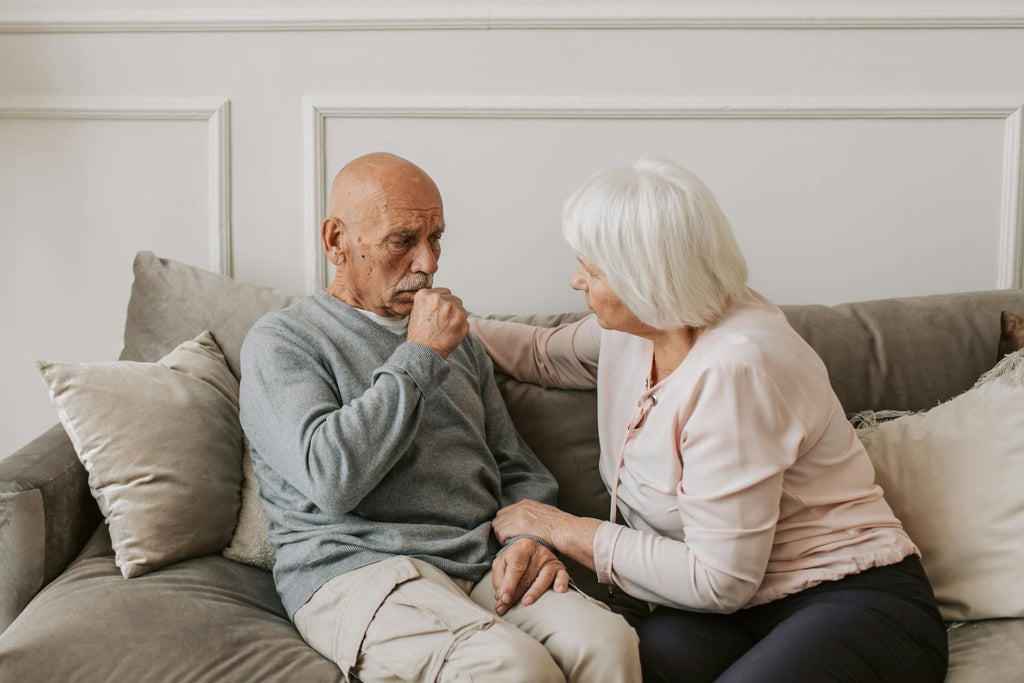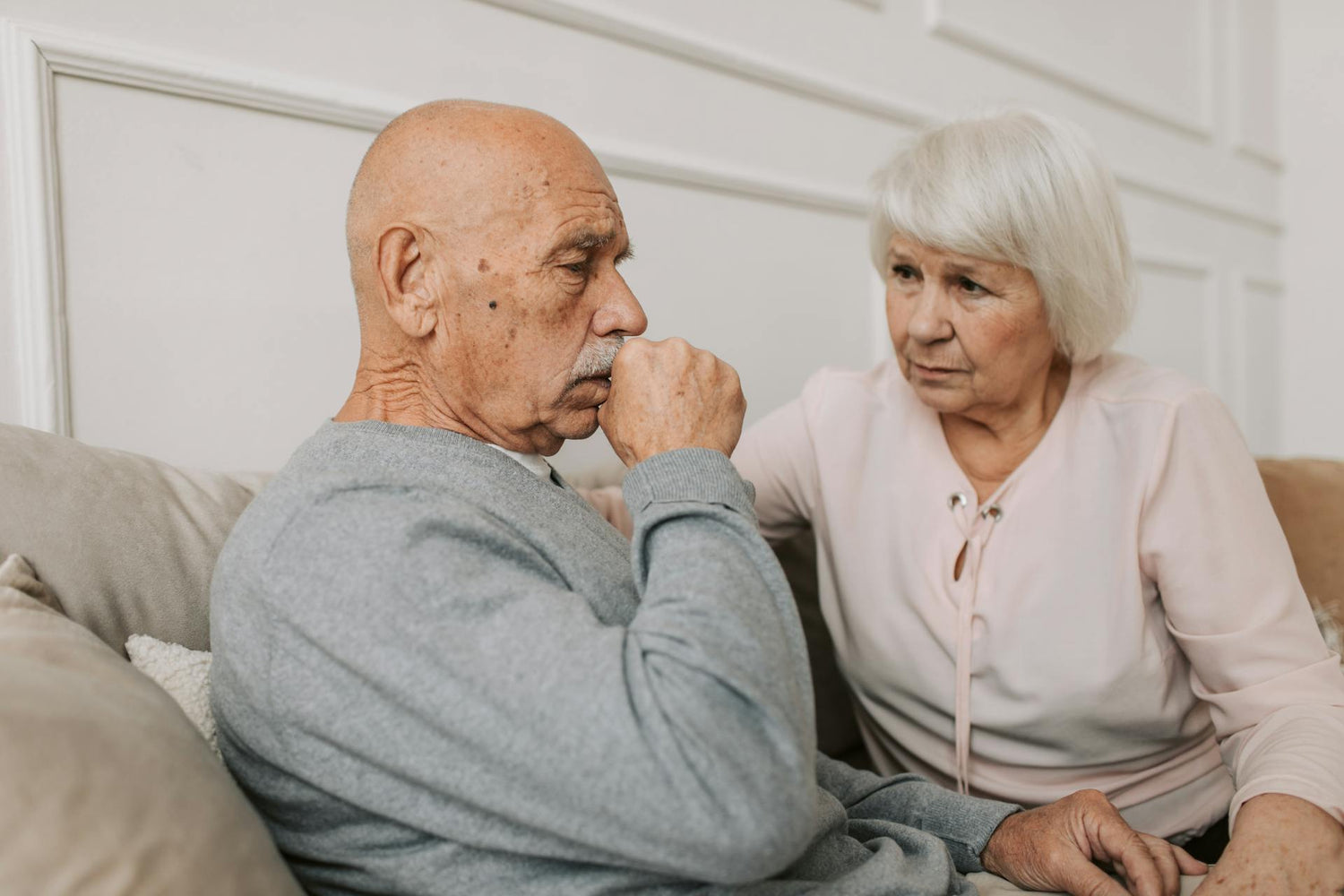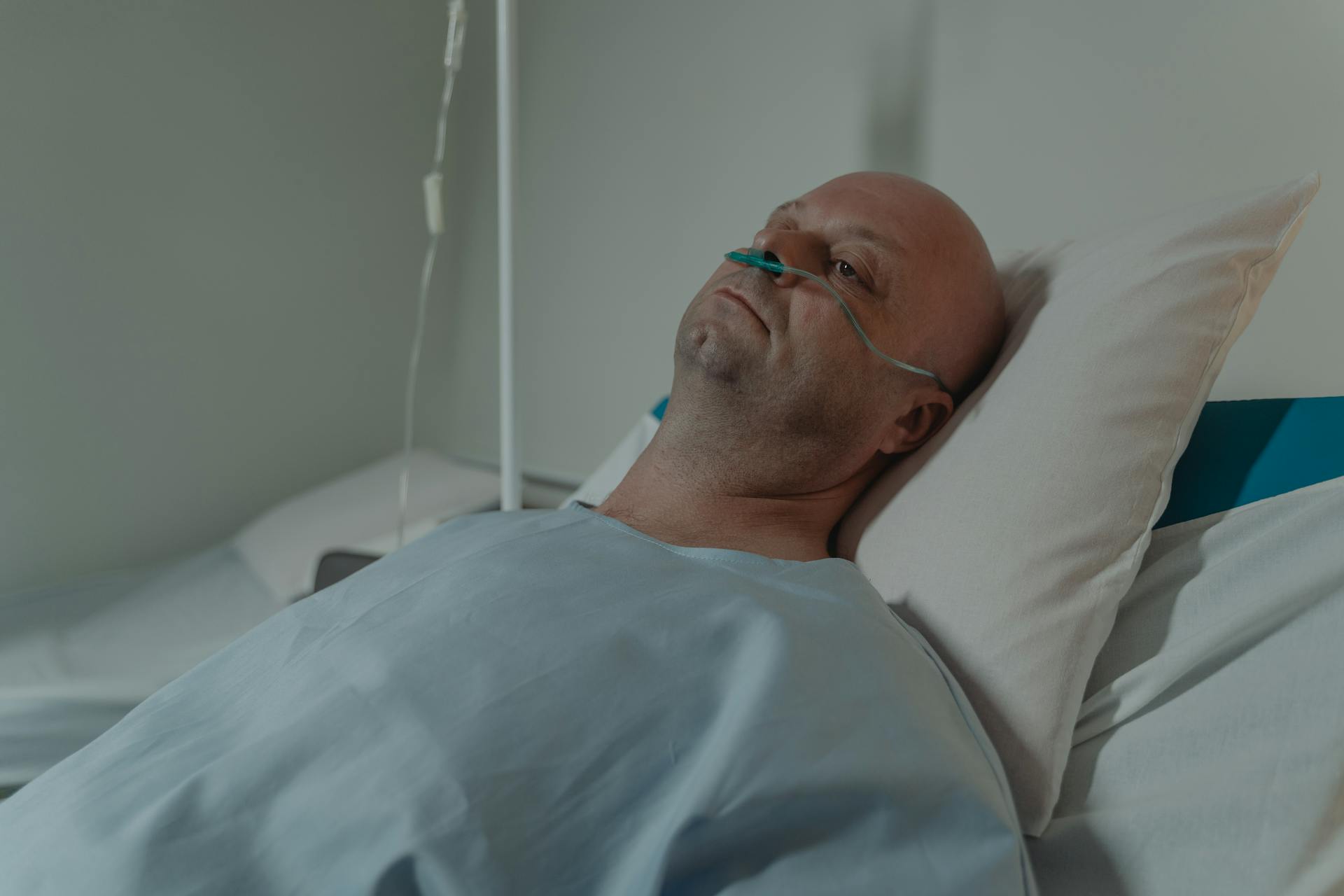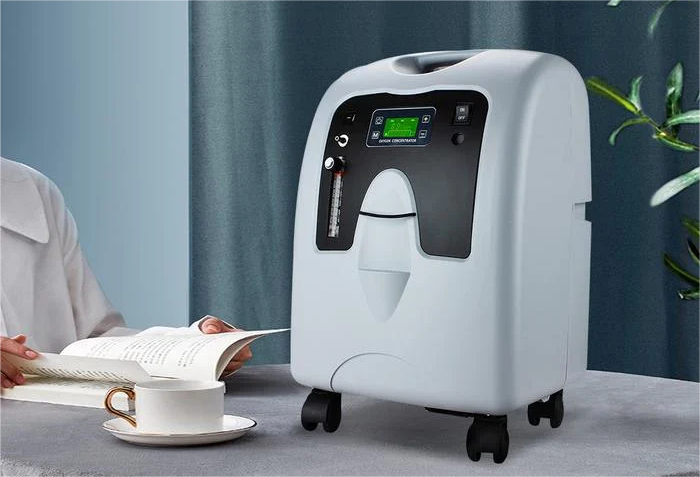Keeping an eye on our senior parents' health often means being alert to the quiet signals that they might be struggling for breath. It's not just the clear symptoms, such as persistent coughing, but also subtler signs like unusual tiredness or a change in skin tone that could suggest a need for oxygen therapy. This guide is designed to help you recognize these important hints. By understanding when to consider oxygen therapy, you can take timely steps to support your parents' health and ensure they have the energy and vitality to enjoy their later years with ease and comfort.
1. Shortness of Breath
If your senior parent often feels out of breath without much physical activity, it's an important sign to pay attention to. This shortness of breath could be telling us that their body isn't getting enough oxygen on its own. It's especially a concern if this happens frequently or seems to be getting worse over time. When everyday tasks like walking from one room to another or getting dressed leave them gasping for air, it might be time to talk to a doctor about oxygen therapy. This treatment can help ensure they're getting the oxygen they need, making breathing easier and improving their quality of life.
2. Persistent Coughing or Wheezing
A cough that sticks around for a long time isn't something to ignore. If your senior parent has a cough that won't quit, or you hear a wheezing sound when they breathe, it could be a sign their lungs are having a tough time. This is their body's way of saying it needs help.
Coughing and wheezing can be the lungs' attempt to clear out anything that shouldn't be there, but if these symptoms don't go away, they might suggest a deeper issue. It's not about one-off episodes; persistent symptoms like these are what to look out for. Oxygen therapy can be beneficial in such cases. It can provide the extra oxygen their lungs may need to function better and reduce the strain that leads to coughing and wheezing. So if your parent's cough is lingering or you notice a whistle in their breath, it's worth bringing up with their healthcare provider.

3. Difficulty with Physical Activity
When our senior parents start to find it difficult to do things they used to manage easily, like carrying a bag of groceries or walking their dog, it could be a signal that they are not breathing as well as they should. You might notice that they're moving slower than usual or pausing to catch their breath more often.
This change is important to take seriously because it could indicate that their body isn't getting the oxygen it needs during physical activity. When simple tasks become a struggle due to breathlessness, it's time to consider how oxygen therapy can help. This kind of therapy can deliver the extra oxygen their bodies need to help them move and breathe better. It's all about helping them maintain their independence and the ability to stay active without becoming overwhelmingly tired or short of breath. If you see these changes in your parent's ability to handle everyday activities, consulting with a healthcare professional can set them on the right path to improved mobility and energy.
4. Blue Fingertips and Lips
If you ever notice that your senior parent's lips or fingertips have a blue tint, it's not something to take lightly. This blueness, known medically as cyanosis, is a clear indicator that their blood isn't carrying enough oxygen. It can be startling to see such a visible sign of distress, but it's a direct call to action.
Cyanosis is often more noticeable when they are cold or immediately after a bout of intense physical activity, but if this symptom shows up without an obvious trigger, it's essential to address it quickly. The discolored skin is a result of oxygen levels in the blood dropping too low, which can be harmful if it's not corrected. Oxygen therapy can play a critical role in such situations by boosting the amount of oxygen in the blood, helping to reduce the bluish appearance and prevent it from affecting their overall health. If you spot such changes in your parent's skin color, getting medical advice as soon as possible can lead to the necessary treatment, like oxygen therapy, to help manage this serious condition.
5. Confusion or Memory Problems
It might come as a surprise to learn that when our senior parents start showing signs of confusion or begin having memory problems, it could be linked to their oxygen levels. The brain requires a steady supply of oxygen to function correctly, and if it's not getting enough, it can affect cognitive abilities.
If your parent seems more forgetful lately, or they're having trouble focusing and seem confused about things that were once familiar, it might not just be typical age-related changes. These could be signs that the brain isn't receiving adequate oxygen, affecting their thought processes and memory. Oxygen therapy can often help by increasing the amount of oxygen delivered to the brain, which may improve cognitive function or at least prevent further decline.
It's important to observe these changes closely because they can sometimes be subtle. If you notice a difference in your parent's mental sharpness or memory recall, a conversation with their doctor is warranted.

6. Fatigue and Irritability
Feeling unusually tired or easily annoyed can be common as we age, but when your senior parent is constantly fatigued or irritable, it could be a sign that their body is not getting enough oxygen. Just like muscles tire out when they're overworked, a body running low on oxygen can leave your parent feeling exhausted, even after a full night's sleep or during simple activities.
This persistent weariness and mood change shouldn't be brushed off as just another part of aging. Oxygen therapy may help alleviate these symptoms by ensuring the body takes in enough oxygen to meet its needs, allowing your parent to feel more energized and less cranky throughout the day.
If your parent seems unusually sluggish or short-tempered, it might be helpful to discuss with their doctor whether these symptoms could be related to low oxygen levels.
7. Elevated Heart Rate
If your parent's heart is beating too fast, particularly when they're just chilling out, it could be a red flag that they're not getting enough oxygen. This can make the heart work overtime to get oxygen-rich blood where it needs to go. Spotting a speedy pulse during a check-up or with a heart rate monitor at home could mean their lungs need some backup. Oxygen therapy often helps in these situations, taking some of the load off the heart by boosting those oxygen levels. Notice your parent's heartbeat racing regularly? It's time to call their doctor to see if oxygen therapy or another treatment might help keep their ticker ticking along just right.
8. Sleep Disturbances
A good night's sleep is vital for everyone, but if your senior parent is having trouble sleeping, it might be linked to their breathing. Noticeable snoring, long pauses in breathing during sleep, or waking up feeling tired can all be signs of sleep disturbances related to respiratory issues.
These symptoms could suggest a condition like sleep apnea, where the body experiences brief lapses in breathing that disrupt sleep. When this happens, not only does it affect sleep quality, but it also impacts how much oxygen their body receives throughout the night. Over time, this can lead to daytime sleepiness and other health problems.
If you're noticing that your parent is frequently restless at night or still seems fatigued after sleeping, it's worth discussing with their doctor. The doctor may recommend a sleep study to pinpoint the issue and determine whether oxygen therapy could help ensure they get the oxygen they need for a better night's rest.
Related: Can You Sleep with a Portable Oxygen Concentrator?

9. Ankle Swelling
Swollen ankles aren't just a normal part of getting older and can hint at bigger health issues, like breathing problems. When ankles puff up, it could mean the lungs aren't getting enough oxygen to the body, causing fluid to build up. Watch out for swelling that comes with other worrisome signs, such as shortness of breath or a bluish tint to the lips. Oxygen therapy might help ease the puffiness but get a doctor to check things out since it could also point to heart troubles or circulation issues. They'll figure out what's up and how to tackle it, whether that's with extra oxygen or something else.
10. Changes in Skin Color
Keep an eye out for any big changes in your parent's skin color, like if it starts looking blueish or really red. These color shifts can be a big alarm bell, signaling that something might be off with their oxygen levels-blue typically means not enough oxygen, and red could point to things like infections or too much blood flow. Consistent skin color changes, especially in their nails or lips, need a doctor's attention. While oxygen therapy could help even out the skin tone by upping the oxygen in their blood, it's super important to get medical advice since these color changes can be signs of various health issues.
11. Chest Pain
When your senior parent complains of chest pain, it's a symptom that should never be taken lightly. Chest pain can be a sign of many different conditions, some of which are serious and require immediate medical attention. Among these conditions could be respiratory-related issues, where the lungs may struggle to provide enough oxygen to the body, causing discomfort or pain in the chest area.
If the chest pain occurs alongside other symptoms we've discussed, like shortness of breath or a blue tint to the skin, it might be an indication that oxygen therapy is needed. This therapy can help alleviate the strain on the body by ensuring a steady supply of oxygen, potentially easing the chest pain if it's related to poor oxygenation.
Final Thoughts
It's crucial to be alert to all the subtle signs that might indicate your senior parent is having difficulty breathing, not just the obvious ones. Whether it's experiencing fatigue during simple tasks or noticing changes in their skin color, these could be signs that oxygen therapy is required. Recognizing and responding to these indicators promptly can greatly benefit your parents' well-being, making sure they have enough energy and maintain a good quality of life. Monitor these symptoms and bring them up with a healthcare provider if they appear. It's about making sure your parents receive the attention they need to spend their later years in well-being and comfort.





Leave a comment
This site is protected by hCaptcha and the hCaptcha Privacy Policy and Terms of Service apply.